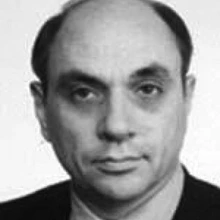Prof. Emeritus Wing, who designed journalism facility, dies
William H. Wing, an esteemed University of Arizona professor emeritus in physics and optical sciences who also helped design the UA School of Journalism’s current facility, died Aug. 4 after suffering a heart attack in Tucson. He was 80.
Wing, the longtime partner of retired UA School of Journalism Director Jacqueline Sharkey, specialized in atomic, molecular and optical physics. He was an experimentalist who created two new fields of spectroscopy that opened new ways to examine atoms and ions. His work resulted in two nominations for the Nobel Prize.

Wing received his B.S. from Yale University in 1960, his M.S. from Rutgers in 1962 and his Ph.D. from Michigan in 1968.
“As an undergraduate (at Yale), Bill was torn between majoring in English or physics,” Sharkey said. “He chose the latter because of his urge to explore fundamental structures and forces.”
Wing had a lifelong interest in the impact of science and technology policy on society, which led to fellowships from the American Association for the Advancement of Science to act as a science adviser to the U.S. State Department and Environmental Protection Agency in Washington, D.C.
Among his other honors, Wing was named a John Simon Guggenheim Memorial Fellow and an Alexander von Humboldt U.S. Senior Scientist.
From 2002 to 2004, Wing also played a crucial role in the development of the UA School of Journalism when it moved from the Franklin Building to the Louise Foucar Marshall Building on North Park Avenue.
Wing designed all the Marshall laboratory and seminar rooms, and he worked with the university to ensure that the wiring, data ports and wiring-closet capabilities would enable the school’s infrastructure to expand as technology evolved.
“Without Bill’s architectural skills, deep knowledge of computer systems and commitment to enabling students to have the best possible educational opportunities, the School of Journalism would never have been able to create an experiential curriculum that could evolve over time,” said Sharkey, a professor emeritus who led the school from 2000 to 2011.
Wing also oversaw the school’s technical-support operation for several years after the move to Marshall.
“Bill was dedicated to ensuring that journalism students received the best education possible —then and now,” said Carol Schwalbe, director of the School of Journalism.
No services are planned.

